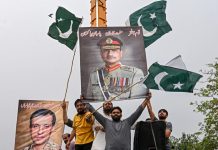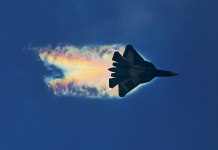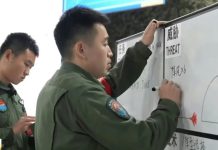The answer to India’s ambiguous stand on Myanmar’s military coup could be hidden inside its close defense ties with Thailand.
Those geopolitics matters more than the cause of democracy in India’s neighborhood policy was reasserted on June 9, when the 31st edition of the India-Thailand Coordinated Patrol (Indo-Thai CORPAT) exercise commenced in the Andaman Sea.
- At €7.8B, Why Indian Rafale Jets Are ‘Double The Cost’ Than Egyptian Rafales?
- Why Did Netizens ‘Mock’ Nigeria For Importing JF-17 Jets From Pakistan?
Indian Naval Ship (INS) Saryu, an indigenously built Naval Offshore Patrol Vessel and His Majesty’s Thailand Ship (HTMS) Krabi, an Offshore Patrol Vessel, along with Dornier Maritime Patrol Aircraft from both navies are participating in the three-day exercise.
While observers of India’s foreign policy are highlighting these days New Delhi’s ambivalent attitude towards the usurpation of power by the military junta in Myanmar since February, the fact remains that despite its stated goal of the return of the democracy in Bangkok, India has been doing normal business with the military government of Thailand led by its chief Prayut Chan-o-cha, who now functions as the country’s Prime Minister.
He had staged a coup in May 2014 to oust the then caretaker government of Yingluck Shinawatra.
The 31st edition of India-Thailand Coordinated Patrol (Indo-Thai CORPAT) between the Indian Navy and the Royal Thai Navy is being conducted from today till 11 June. pic.twitter.com/WtM1EcZkkf
— ANI (@ANI) June 9, 2021
India-Thailand Cooperation
In fact, Indo-Thai cooperation has improved considerably over the past five years, with both Indian Prime Minister Narendra Modi and Prayut Chan-o-cha visiting each other’s capital with full official level delegations to promote ties at all levels — political, economic, cultural, and military.
- Despite World’s Biggest Navy, Why China Will Struggle To Match Indian Submarines In The Indo-Pacific?
- France Likely To Partner India In Developing Six Nuclear-Powered Attack Submarines
The military government in Bangkok and the democratic regime in Delhi now do have a comprehensive partnership. India’s ‘Act East’ policy has been complemented by Thailand’s ‘Act West’ policy.
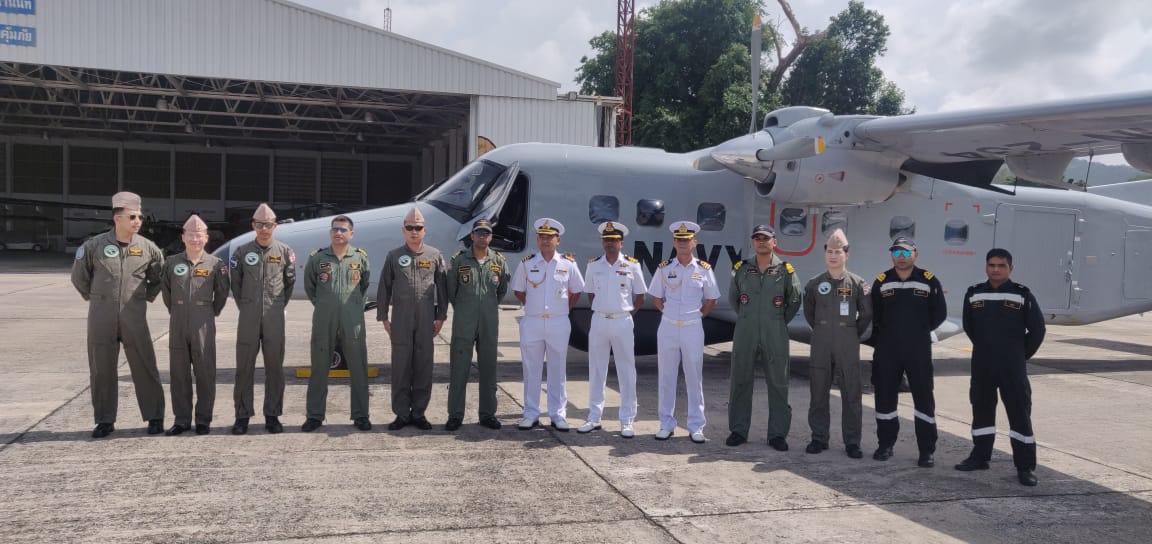
The two countries cooperate closely in the ASEAN, East Asia Summit (EAS) and Bay of Bengal Initiative for Multi-Sectoral Technical and Economic Cooperation (BIMSTEC) groupings as also in Mekong Ganga Cooperation (MGC), Asia Cooperation Dialogue (ACD), Indian Ocean Rim Association (IORA) and Ayeyawady-Chao Phraya-Mekong Economic Cooperation Strategy (ACMECS).
In a sense, it can be argued that “the Security Relationship” has proved to be the driver of the comprehensive Indo-Thai partnership. The ongoing CORPAT is a biannual event along their international maritime boundary line since 2005 with the avowed aim of reinforcing their common pledge towards keeping this vital part of the Indian Ocean safe and secure for international trade.
#BridgesofFriendship. #IndianNavy & #RoyalThaiNavy units undertook coordinated #MaritimePatrol & #JointExercises during the Sea Phase. RTN delegates called on Maj Gen Beji Mathews, Chief of Staff at Headquarters Andaman and Nicobar Command. #MutualCooperation #InterOperability pic.twitter.com/cVFJrfq5qB
— SpokespersonNavy (@indiannavy) September 14, 2019
CORPAT builds up understanding and interoperability between their two navies and facilitates an institution of measures to prevent and suppress unlawful activities like illegal unreported unregulated (IUU) fishing, drug trafficking, maritime terrorism, armed robbery and piracy. It further helps enhance the operational synergy by exchange of information for the prevention of smuggling, illegal immigration and for conduct of SAR (Search and Rescue) operations at sea.
India’s SAGAR Vision
It may be noted that as part of India’s vision of SAGAR (Security and Growth for All in the Region), the Indian Navy has been proactively engaging with the countries in the Indo-Pacific region towards enhancing regional maritime security. This has been through bilateral and multilateral exercises, Coordinated Patrols, Joint EEZ Surveillance, and Humanitarian Assistance and Disaster Relief (HADR) operations.
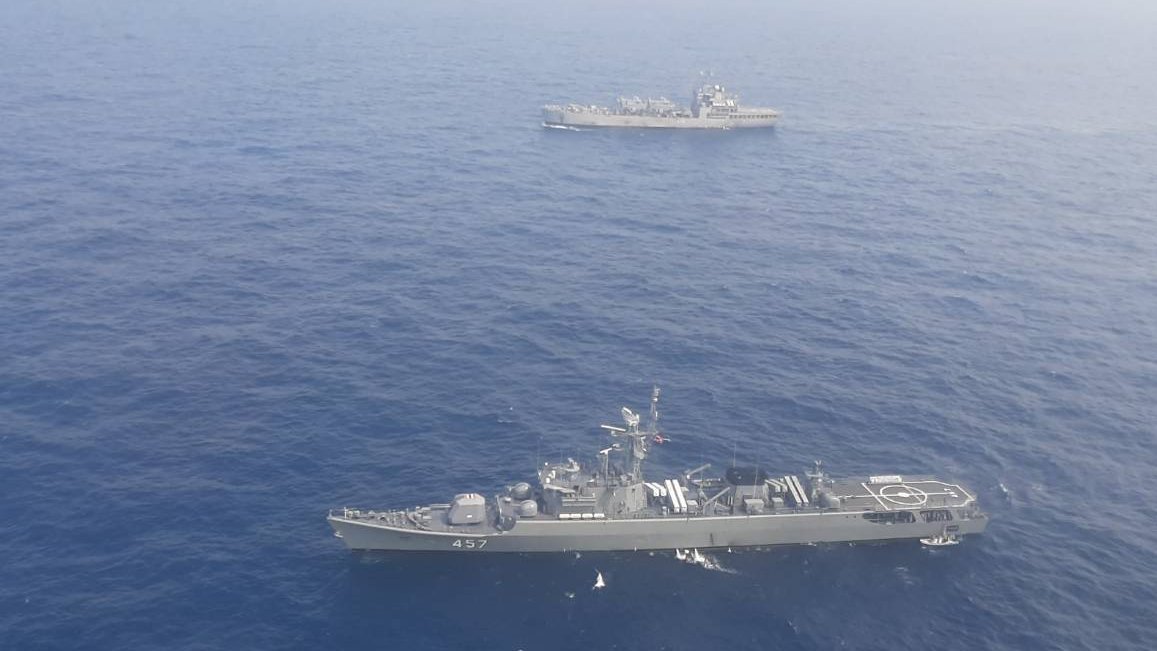
It is in this context that the Indian Navy and the Thai Navy have enjoyed a close and friendly relationship covering a wide spectrum of activities and interactions, which have strengthened over the years, irrespective of the nature of the regimes in their two capitals.
In fact, the importance that the two countries are giving to such security cooperation even under the Covid-19 pandemic is further evident from the fact only six months ago, in November 2020, their navies had joined the Navy of Singapore in a two-day maritime drill called SITMEX-20 in the Andaman Sea.
The trilateral exercise witnessed the three navies participate in a variety of exercises, including naval maneuvers, surface warfare exercises, and weapon firings.
India’s indigenously-built anti-submarine warfare corvette Kamorta and missile corvette Karmuk had participated in this exercise, which, incidentally, was conducted as a “non-contact, at sea only” exercise in view of the pandemic. It highlighted growing synergy, coordination, and cooperation in the maritime domain among three friendly navies and maritime neighbors in the Indo-Pacific.
Cooperation Between Armies & Navies
Apart from the navies, the armies of the two countries also conduct a joint exercise called “Maitree” every year (the last was held in 2019; the 2020 edition could not be held because of the pandemic). It is conducted alternately by Thailand and India to tone up the interoperability between the two countries in the areas of counterterrorism, particularly in honing the tactical and technical skills in joint counterinsurgency and counterterrorist operations in rural and urban scenarios.
However, it is the navies, which steal the show in the growing military ties between India and Thailand. And that is because they regularly participate too in regional events such as the Multilateral Naval Exercises (MILAN) naval exercises (organized by the Indian Navy every two years) that involve navies from the larger Indian Ocean region, including Australia.
There is also the Indian Ocean Naval Symposium (IONS), a regional maritime security construct, with 32 nations as members. Floated by the Indian Navy, the IONS assembles to generate a flow of information among naval professionals so as to develop a common understanding of regional maritime issues in the Indo-Pacific as a whole.
Similarly, from time to time, the Indian and Thai navies are invited by the US Navy to the world’s largest biennial international maritime warfare exercise organized by the US Navy, called the Rim of Pacific (RIMPAC). This is important while efforts are now on in the United States to block China’s participation in it.
It may be noted here that despite continuous growth in Chinese investments in Thailand’s economic projects of late, the country remains a strong security partner of the US in the Indo-Pacific as a major “non-NATO ally”. And this relationship is pretty old. Thailand had hosted 50,000 American troops during the Vietnam War. It is a regional hub for the US on intelligence, law enforcement, counterterrorism, and counternarcotics issues.
Given the increasing naval presence of China in this part of the world and rising concerns over the challenges to the principle of free, open, inclusive, and rules-based Pacific, the US would like closer interactions among the friendly navies in the region on both bilateral and multilateral levels.
In this emerging security dynamic, the Indo-Thai security relationship has scope to grow further.
READ MORE
- Watch: The Ultimate Dogfight Between US & Russian Fighter Jets Over A ‘Top-Secret’ Air Base In Nevada
- Why India’s Ladakh Region Is Crucial For China’s Rise As An Economic Super-Power?
- 30 Times Faster Than Speed Of Sound: Is China Really Winning The Hypersonic Race With Its JF-22 Wind Tunnel?

